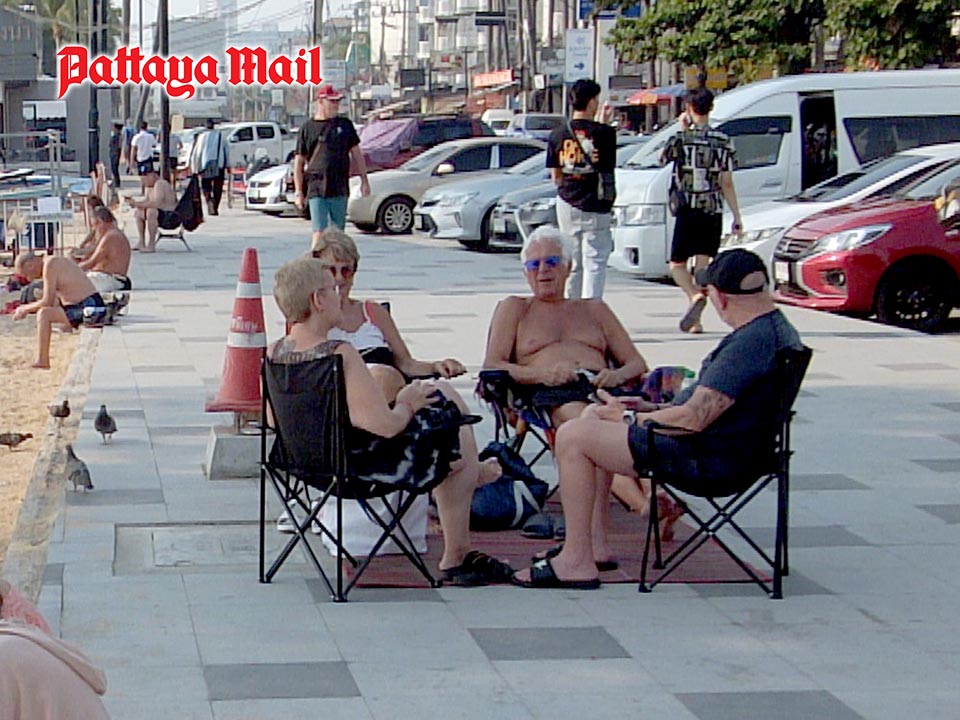Pattaya faces the facts and pushes forward amid slumping hotel revenues
Tourism Recovery Hits a Wall: Survey reveals 27% of hotels expect revenue to fall over 20% this quarter, citing global slowdown and shifting traveler habits.
PATTAYA, Thailand – Pattaya is being forced to confront a difficult truth: tourism recovery is slowing, foreign arrivals are down, and hotel revenues are shrinking. Once a symbol of Thailand’s vibrant tourism economy, the city now faces a challenging low season, with stakeholders calling for realism, adaptation, and deeper structural reform.
According to the latest Hotel Business Confidence Index for May 2025, compiled by the Thai Hotels Association (THA) in partnership with the Bank of Thailand, the outlook is concerning. The survey, conducted from May 13–28 across 116 hotel operators, reveals that more than half of Thai hotel businesses expect a year-on-year drop in international tourists in 2025, particularly from short-haul markets (excluding China).
For the second quarter of 2025, over 50% of hoteliers expect revenues to decline, with the impact especially harsh in the north and central regions, where earnings are projected to fall by at least 10%.
More specifically:
-27% of hotels expect revenue to decline by more than 20%,
-20% project a drop of 11–20%,
-8% foresee losses between 6–10%, and
-Only 17% expect income to remain close to last year’s levels.
Even in Pattaya and the eastern region, which typically fare better, the signs are troubling. Average occupancy dropped to 62.2% in May, down from 69.2% in April, and hoteliers predict a further dip to 51.5% in June—well below sustainable operating levels for many properties.
Breaking down the May data by hotel classification:
-4-star and above hotels had an average occupancy of 58.4%,
-3-star and below properties saw only 49.8%.
Foreign guests were mainly from Europe, Russia, and non-ASEAN Asian countries, but rising competition, higher costs, and shifting tourist behavior continue to weigh down Thailand’s appeal.
“We have to face reality,” said THA President Thienprasith Chaipattranan. “Hotel businesses are under pressure from global economic uncertainty, rising service costs, and competition from neighboring countries. Tourists are more price-conscious, and many feel Thailand no longer offers the same value for money.”
Indeed, regional competitors have stepped up investment in infrastructure and safety, while Thai hotel prices have risen due to inflation and labor costs—further challenging perceptions of affordability.
Despite these headwinds, the government is betting on the ‘Thai Travel Co-Pay’ program to inject some relief into the industry during the low season (June–September). The campaign, which offers subsidies to domestic travelers, is expected to boost hotel revenues by about 5%, a modest but welcome reprieve.
“We have to face reality,” says THA President, warning that rising costs and tougher regional competition are making Thailand feel less worth the price for today’s tourists.
Tourism and Sports Minister Sruangsak Thienthong confirmed that business registration for the campaign is now open, with public sign-ups scheduled to begin next week. Although the budget for the program must still be approved by the Cabinet, authorities have fast-tracked registration to avoid delays, aiming to launch the program by July 1, 2025.
In tandem, Tourism Authority of Thailand (TAT) Governor Thapanee Kiatphaibool said TAT has already opened online portals at thai.tourismthailand.org and partner.tat.or.th for interested businesses to pre-register. Once Cabinet approval is finalized, participating businesses will be notified to proceed with the next steps.
Still, industry leaders caution that short-term stimulus alone won’t be enough. Many hotels, especially small and medium-sized Thai-owned establishments, are at risk of closure as they struggle to meet payroll and debt obligations in a market that hasn’t fully rebounded.
“Without sustainable structural support, we’ll see more hotels shuttering or being sold off,” said one Pattaya hotelier. “The foot traffic may be back, but the spending and long-stay guests aren’t.”
In response, the government has unveiled five long-term tourism measures, making the industry a national agenda. These include:
Aggressive international image promotion,
Comprehensive safety upgrades,
Streamlining traveler services,
Improving infrastructure, and
Creating year-round tourism activities.
THA believes these efforts, combined with domestic programs like co-pay, can rebuild confidence and restore Thailand’s competitive edge. But the clock is ticking.
Pattaya’s future depends on its ability to accept current realities, adapt its offerings, and move forward with both resilience and realism. Without that, it risks becoming a cautionary tale in the story of Thailand’s post-pandemic tourism recovery. (Photo by Jetsada Homklin)



